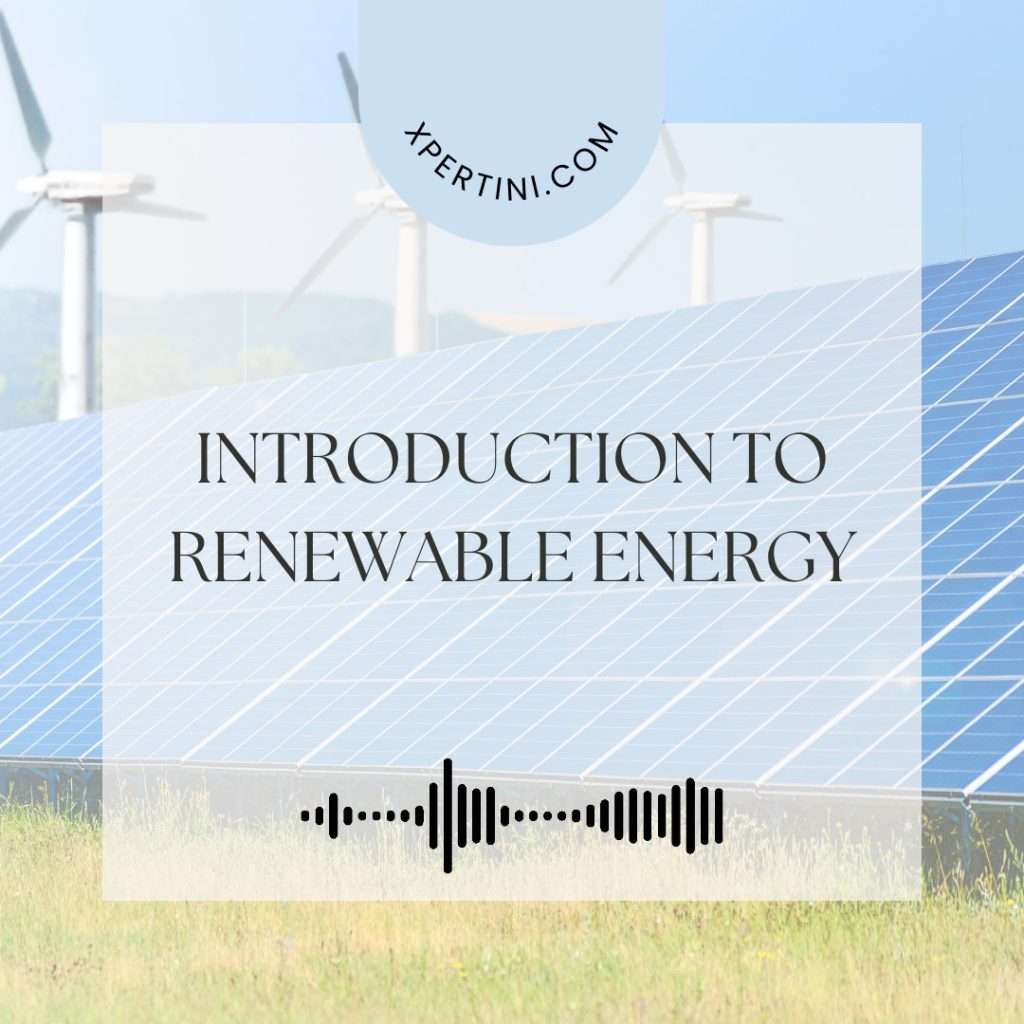Introduction to Renewable Energy
Course Summary
In this comprehensive course on renewable energy, learners are introduced to the diverse and rapidly evolving field of sustainable energy production. Delving into the fundamental principles, technologies, and applications of renewable energy sources, participants gain a deep understanding of the global transition towards cleaner and more sustainable energy solutions.
Throughout the course, students explore the various types of renewable energy sources, including solar, wind, hydroelectric, biomass, geothermal, and more. They learn about the underlying mechanisms of each energy source, as well as the environmental, economic, and social implications associated with their utilization.
Moreover, the course delves into the intricate processes of harnessing renewable energy and integrating it into existing grid infrastructures. Learners examine the challenges and solutions involved in grid compatibility, exploring concepts such as smart grids and energy storage technologies to optimize energy distribution and consumption.
Additionally, the course sheds light on the policy and regulatory frameworks governing renewable energy adoption worldwide. Participants gain insights into incentives, subsidies, international agreements, and national policies aimed at promoting renewable energy development and combating climate change.
Furthermore, the course provides valuable insights into the diverse career opportunities available in the renewable energy sector. Learners explore various job roles, skill requirements, and qualifications necessary to pursue a successful career path in this growing field.
Overall, this course equips participants with the knowledge, skills, and perspectives needed to contribute meaningfully to the transition towards a sustainable energy future. By understanding the complexities and opportunities inherent in renewable energy, learners are empowered to drive positive change and innovation in the global energy landscape.
Course Overview
This course provides an in-depth introduction to the field of renewable energy, focusing on its importance in addressing global energy challenges, reducing carbon emissions, and fostering sustainable development. Participants will explore various renewable energy sources, technologies, and applications, gaining essential knowledge and skills to contribute to the transition towards a clean energy future.
Course Objectives
- Understand the significance of renewable energy in addressing climate change and achieving energy security.
- Explore different types of renewable energy sources, including solar, wind, hydro, biomass, and geothermal.
- Examine the principles, technologies, and applications of renewable energy systems.
- Analyze the environmental, economic, and social impacts of renewable energy deployment.
- Evaluate the challenges and opportunities associated with integrating renewable energy into existing energy systems.
- Develop practical skills for designing, implementing, and managing renewable energy projects.
- Critically assess policy frameworks, incentives, and regulations shaping the renewable energy sector.
- Collaborate with peers to solve real-world problems and case studies related to renewable energy.
- Activities, simulations, and experiments to enhance comprehension and skill development.
- Prepare for future career opportunities and further studies in renewable energy and related fields.
Course Outcomes
- Identify various renewable energy sources and describe their characteristics.
- Understanding of the fundamental principles underlying renewable energy technologies.
- Analyze the environmental benefits and challenges associated with renewable energy deployment.
- Design and evaluate renewable energy systems for specific applications.
- Assess the economic feasibility and cost-effectiveness of renewable energy projects.
- Examine policy mechanisms and regulatory frameworks influencing renewable energy markets.
- Collaborate effectively in teams to solve renewable energy-related problems.
- Apply mathematical and scientific concepts to analyze renewable energy data and trends.
- Demonstrate proficiency in using software tools for modeling and simulation of renewable energy systems.
- Explore career pathways and opportunities in the renewable energy industry.
Course Audience
- Students pursuing careers in renewable energy engineering, environmental science, or sustainability.
- Professionals seeking to transition into the renewable energy sector.
- Anyone interested in learning about renewable energy technologies and their implications for the environment and society.

